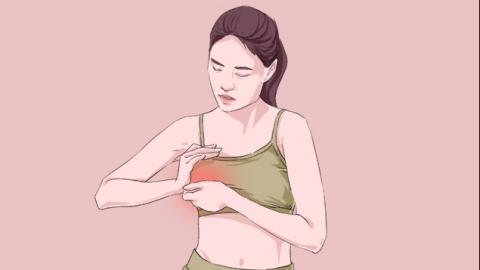How is breast hyperplasia treated?
Generally, mastopathy may be caused by hormonal fluctuations, pregnancy and lactation, mammary duct ectasia, mastitis, Hashimoto's thyroiditis, and other factors. It is recommended to seek timely medical advice and undergo general treatment, medication, and other therapies under a doctor's guidance. A detailed explanation is as follows:

1. Hormonal Fluctuations
During the menstrual cycle, the levels of estrogen and progesterone in women fluctuate, causing cyclical proliferation and regression of breast tissue. Incomplete regression may lead to mastopathy. It is important to maintain healthy lifestyle habits, avoid excessive fatigue, and reduce emotional fluctuations to maintain stable hormone levels.
2. Pregnancy and Lactation
During pregnancy and lactation, significant hormonal changes occur in a woman's body, and the breast tissue undergoes proliferative changes to adapt to the demands of breastfeeding. Hormonal imbalances during this process may lead to mastopathy. Lactating women are advised to maintain regular breastfeeding habits and avoid milk stasis to reduce the risk of mastopathy.
3. Mammary Duct Ectasia
Mammary duct ectasia is often related to impaired ductal drainage and infection. When the mammary ducts experience poor drainage, secretions can accumulate in the ducts, potentially causing ductal dilation, which may stimulate surrounding tissues and lead to proliferative changes in the breast tissue. Symptoms such as nipple discharge and pain may also occur. Treatment under a doctor's guidance may include medications such as aspirin tablets, ibuprofen tablets, and dexamethasone tablets.
4. Mastitis
Mastitis primarily occurs in lactating women due to milk stasis and bacterial invasion of breast tissue. The inflammatory response causes breast tissue congestion, edema, and proliferation. Symptoms such as high fever and chills may also occur. Treatment may include medications such as penicillin V potassium granules, dandelion granules, and Runing tablets, as directed by a physician.
5. Hashimoto's Thyroiditis
Hashimoto's thyroiditis is an autoimmune thyroid disease. When the immune system becomes disordered, it produces antibodies targeting the thyroid gland. This immune disturbance can also affect breast tissue, triggering an immune response in the breast tissue that leads to mastopathy. Symptoms such as fatigue and cold intolerance may also be present. Treatment under a doctor's recommendation may include medications such as levothyroxine sodium tablets, selenium yeast tablets, and prednisone acetate tablets.
In daily life, women should maintain a cheerful mood, avoid prolonged mental stress and anxiety, as negative emotions can affect endocrine function and increase the risk of mastopathy. Additionally, regular breast examinations are recommended; monthly self-examinations and annual professional breast ultrasound or mammography exams are advised for early detection and management of breast issues.






